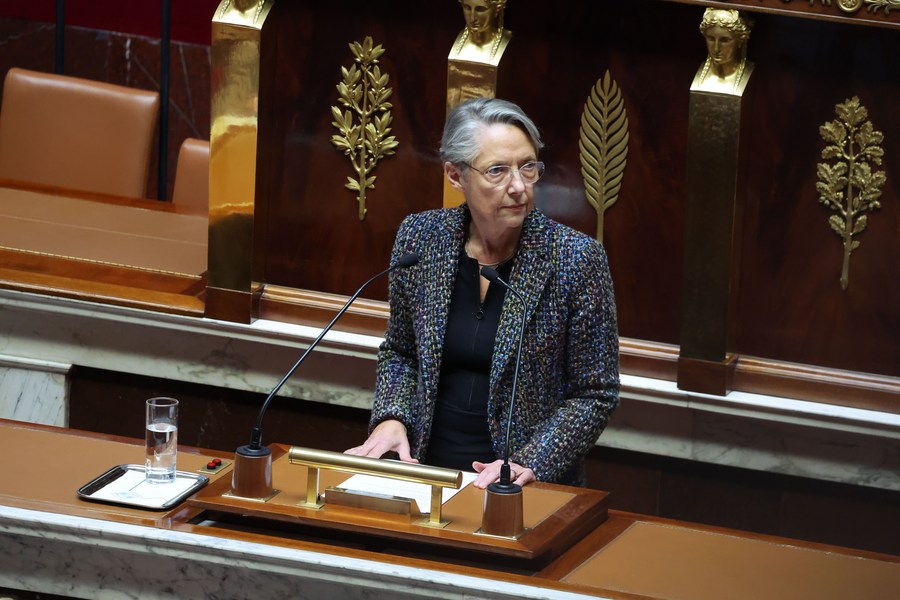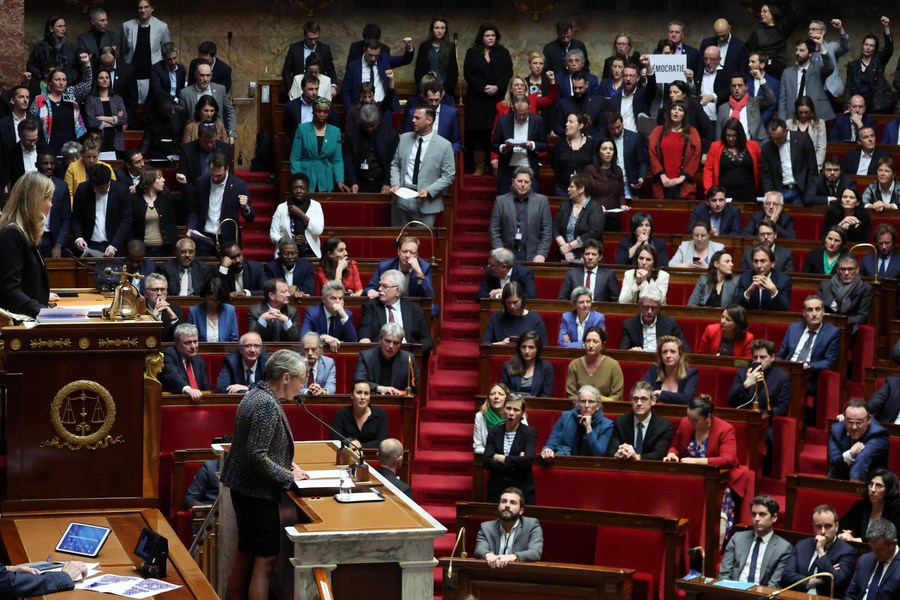
French Prime Minister Elisabeth Borne delivers a speech at the National Assembly in Paris, France, March 16, 2023. (Photo by Rit Heize/Xinhua)
Should any of the two no-confidence motions be endorsed by an absolute majority, French Prime Minister Elisabeth Borne would have to submit to President Emmanuel Macron the resignation of her government.
PARIS, March 17 -- Two no-confidence motions had been filed by Friday afternoon against the French government led by Prime Minister Elisabeth Borne, who forced passage of the controversial pension reform bill without a vote in the National Assembly.
The first multiparty motion was filed by the centrist opposition group LIOT. It was co-signed by 91 opposition deputies from different parties.
The second motion was tabled by the far-right National Rally party, which has 88 deputies in the National Assembly. The deputies argue that the pension overhaul is "unfair and unnecessary."

French Prime Minister Elisabeth Borne delivers a speech at the National Assembly in Paris, France, March 16, 2023.
Borne on Thursday triggered an article of the country's Constitution that allows the government to force passage of the controversial pension reform bill without a vote in the National Assembly.
According to Paragraph 3 of Article 49 of the French Constitution, the prime minister may, after consulting with the Council of Ministers, impose the adoption of a bill by the National Assembly without a vote. The only way for the National Assembly to veto this is to pass a no-confidence motion against the government.
Should any of the two no-confidence motions be endorsed by an absolute majority -- 289 votes in favor -- Borne would have to submit to French President Emmanuel Macron the resignation of her government.

Parliament members hold placards during a speech by Prime Minister Elisabeth Borne at the National Assembly in Paris, France, March 16, 2023.












